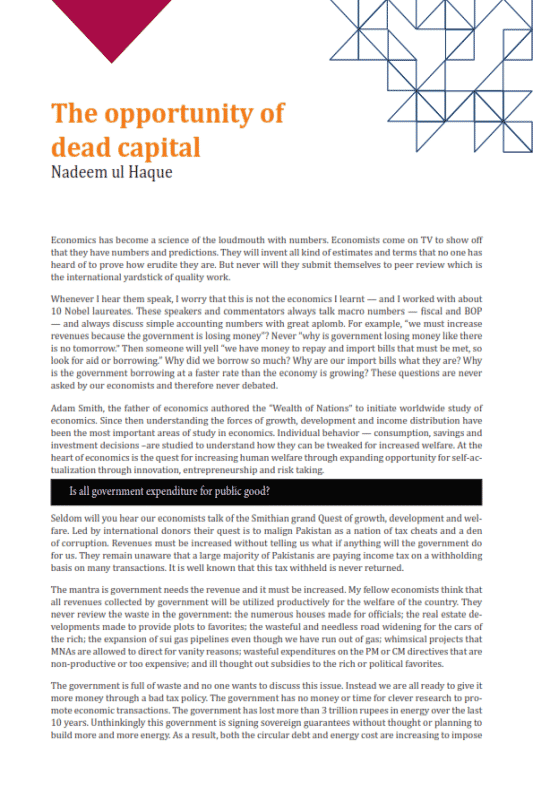The opportunity of dead capital
Economics has become a science of the loudmouth with numbers. Economists come on TV to show off that they have numbers and predictions. They will invent all kind of estimates and terms that no one has heard of to prove how erudite they are. But never will they submit themselves to peer review which is the international yardstick of quality work. Whenever I hear them speak, I worry that this is not the economics I learnt — and I worked with about 10 Nobel laureates. These speakers and commentators always talk macro numbers — fiscal and BOP — and always discuss simple accounting numbers with great aplomb. For example, “we must increase revenues because the government is losing money”? Never “why is government losing money like there is no tomorrow.” Then someone will yell “we have money to repay and import bills that must be met, so look for aid or borrowing.” Why did we borrow so much? Why are our import bills what they are? Why is the government borrowing at a faster rate than the economy is growing? These questions are never asked by our economists and therefore never debated. Adam Smith, the father of economics authored the “Wealth of Nations” to initiate worldwide study of economics. Since then understanding the forces of growth, development and income distribution have been the most important areas of study in economics. Individual behavior — consumption, savings and investment decisions –are studied to understand how they can be tweaked for increased welfare. At the heart of economics is the quest for increasing human welfare through expanding opportunity for self-actualization through innovation, entrepreneurship and risk taking.




